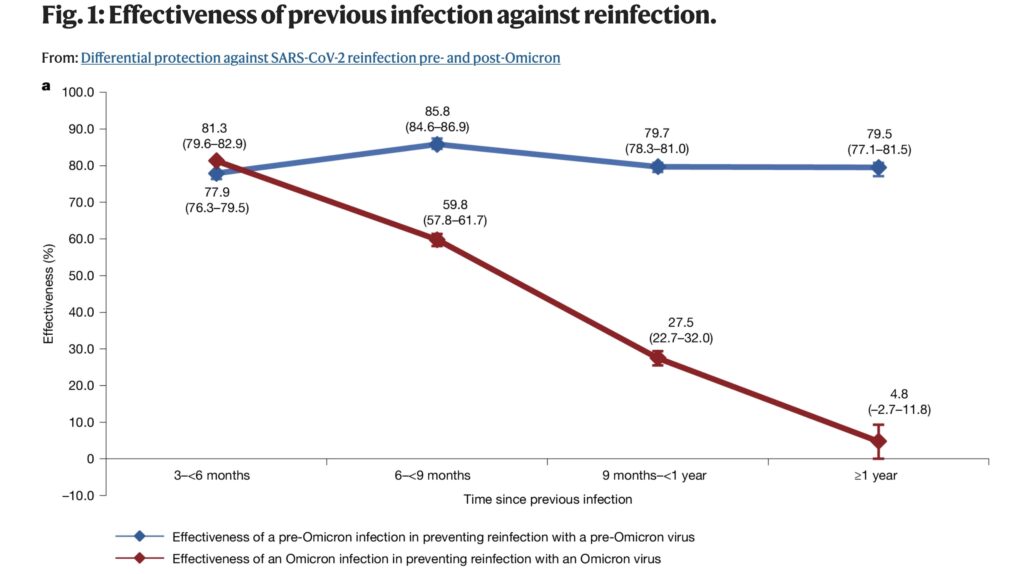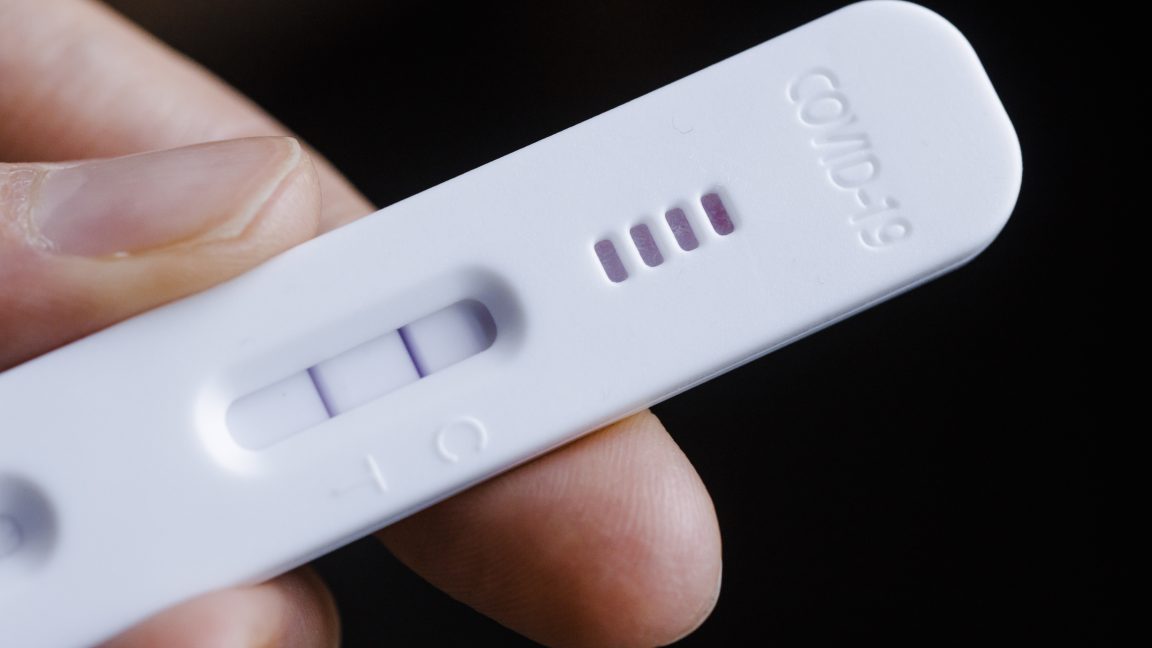New study shows why annual COVID boosters are critical to controlling COVID.
With the rise of omicron came the fall of long-lasting protection from reinfection with the pandemic coronavirus SARS-CoV-2, according to a study published in Nature.
Using population-wide data from Qatar, researchers found that a COVID-19 infection from a pre-omicron variant of SARS-CoV-2 (such as alpha or delta) yielded around 80 percent protection from reinfection with another pre-omicron variant—and that level of protection lasted over the course of at least a year. But, things changed in late 2021 with the emergence of omicron, which still reigns supreme today. According to the data, an infection with omicron provided an initial protection of nearly 80 percent between the first three to six months after infection, but that protection rapidly declined. Between nine months and a year, protection fell to around 27.5 percent, then dropped to a negligible 5 percent after a year.

The results of infection-derived protection were similar regardless of whether people were vaccinated or unvaccinated, a sub analysis found. The study did not evaluate vaccine efficacy. A study published last year in the New England Journal of Medicine estimated that the 2023-2024 mRNA COVID-19 vaccines were 52 percent effective at preventing infection after four weeks, with effectiveness falling to 20 percent at 20 weeks (a little over four and half months).
The only bright spot in the new data was that regardless of what a person was infected with—pre-omicron or omicron—protection from severe, critical, or fatal COVID-19 during a reinfection was nearly 100 percent, and that level of protection was sustained for over a year.
It should be noted, though, that the population of Qatar is predominately male and relatively young. The median age of the over 1.5 million people who represented cases and controls in the study was between 32 and 33. So, the findings here may not be generalizable to populations that skew older. For context, the median age of the US population is around 39.
“Here to stay”
Still, the stark difference in protection from reinfection between the pre- and post-omicron eras of the pandemic is clear—and it's critically important for our current handling of SARS-CoV-2. The reduction of long-term protection from reinfection means that we will continue to face periodic waves of infection and that annual updated vaccines will be critical for dulling potential disease spikes and protecting vulnerable people.
"The short-lived immunity leads to repeated waves of infection, mirroring patterns observed with common cold coronaviruses and influenza," Hiam Chemaitelly, first author of the study and assistant professor of population health sciences at Weill Cornell Medicine-Qatar, said in a statement. "This virus is here to stay and will continue to reinfect us, much like other common cold coronaviruses. Regular vaccine updates are critical for renewing immunity and protecting vulnerable populations, particularly the elderly and those with underlying health conditions."
Chemaitelly and colleagues speculate that the shift in the pandemic came from shifts in evolutionary pressures that the virus faced. In early stages of the global crisis, the virus evolved and spread by increasing its transmissibility. Then, as the virus lapped the globe and populations began building up immunity, the virus faced pressure to evade that immunity.
However, the fact that researchers did not find such diminished protection against severe, deadly COVID-19 suggests that the evasion is likely targeting only certain components of our immune system. Generally, neutralizing antibodies, which can block viral entry into cells, are the primary protection against non-severe infection. On the other hand, immunity against severe disease is through cellular mechanisms, such as memory T cells, which appear unaffected by the pandemic shift, the researchers write.
Overall, the study "highlights the dynamic interplay between viral evolution and host immunity, necessitating continued monitoring of the virus and its evolution, as well as periodic updates of SARS-CoV-2 vaccines to restore immunity and counter continuing viral immune evasion," Chemaitelly and colleagues conclude.
In the US, the future of annual vaccine updates may be in question, however. Prominent anti-vaccine advocate and conspiracy theorist Robert F. Kennedy Jr. is poised to become the country's top health official, pending Senate confirmation next week. In 2021, as omicron was rampaging through the country for the first time, Kennedy filed a petition with the Food and Drug Administration to revoke access and block approval of all current and future COVID-19 vaccines.
Hope you enjoyed this news post.
Thank you for appreciating my time and effort posting news every day for many years.
News posts... 2023: 5,800+ | 2024: 5,700+ | 2025 (till end of January): 487
RIP Matrix | Farewell my friend ![]()
- elena1024
-

 1
1



3175x175(CURRENT).thumb.jpg.b05acc060982b36f5891ba728e6d953c.jpg)
Recommended Comments
Join the conversation
You can post now and register later. If you have an account, sign in now to post with your account.
Note: Your post will require moderator approval before it will be visible.